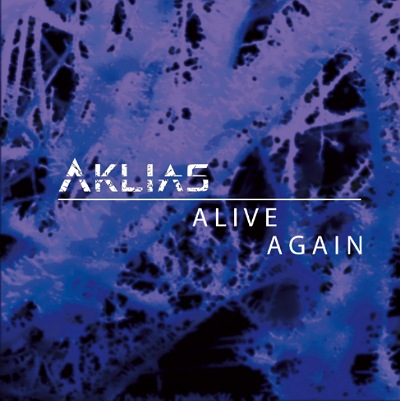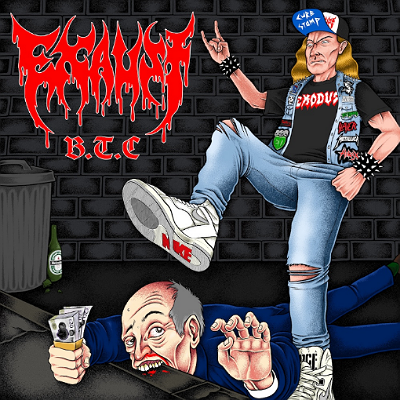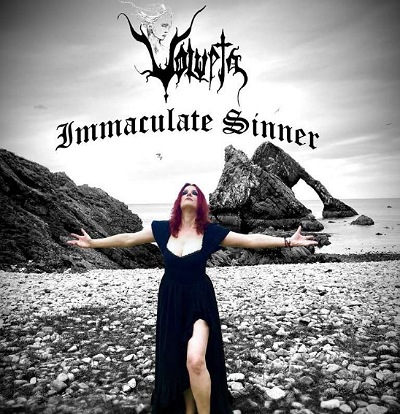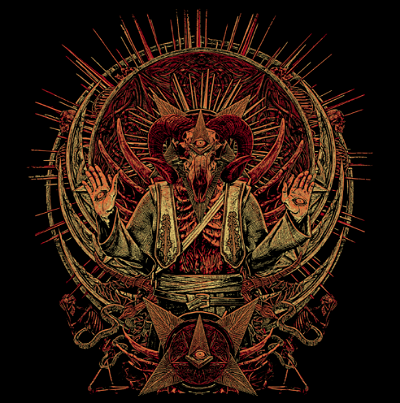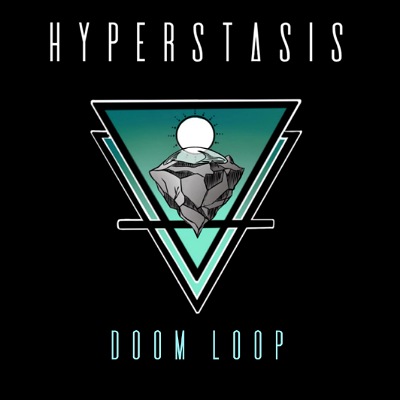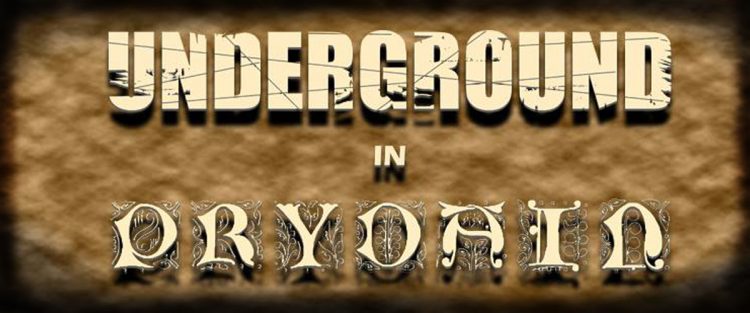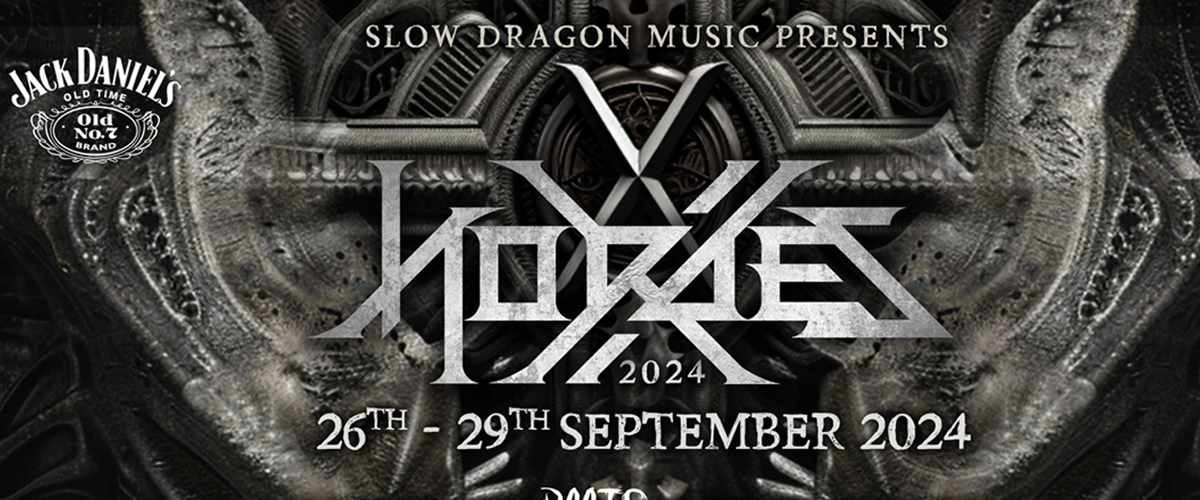Underground In Prydain: Goes around, comes around
Originally posted 01st July 2014
As stated in the last article, UP has been scouring around the ol’ interwebs in search of some interesting underground stories relating to ‘off-stage audience interaction’ (the word ‘fan’ has been seeming a little odd of late). One band that keeps popping up again and again in a positive way, despite their relative ‘newbie’ status, is Reign Of Fury.
Since releasing their debut album in 2012, they have gone from strength to strength, and are gradually becoming somewhat of a household name on the UK underground. UP cornered ROF bassist and doer of all things self-management related, Andy Pilkington for his take on building a band’s musical family.
UP: Hi Andy! Thanks for joining us! This last week, spurred on by some rather unexpected antics from Eric Clapton, UP has been looking into a theory of respect as a commodity for the underground artist. What are your initial thoughts on that?
Andy Pilkington: Respect is everything for us as an emerging band, as without respecting the people you want to listen to your music you can’t expect them to respect you. Pretty simple really.
We’ve built our band around engaging with our fans as much as possible, letting them know we’re there to talk to them, answer questions and just banter via social media, and we always make sure we’re front of stage at our shows to meet people. It’s the only way, or who’s going to care about you? They won’t find your music in mainstream magazines; you have let them into your space to get your music heard.
UP: That’s pretty concise! You’ve obviously thought about this as well!
AP: Definitely. We’re music fans too. Treat other people the way you want to be treated. Nothing simpler.
UP: You’ve been managing ROF for a while now, but you’ve only just joined as a member this year. Did you feel a significant shift in your responsibility in representing the band at this stage?
AP: I don’t think I felt any change to my feelings or approach in terms of managing the band at all, as the relationship we all have is a family. I only manage the band because I love the guys – we all know there’s no money to be made, and I don’t ever want it to be for any reason other than enjoyment.
It has been strange picking up the bass though, as suddenly I’m more vulnerable in terms of my position once I’m playing, as I’m the new boy, and I’m playing catch up to a certain extent. It’s exciting to have that pressure among guys who have been looking up to me as manager. It really opens your eyes wider to the whole band vibe doing both jobs.
In terms of the work I’m doing, I’m at rehearsals and shows as manager anyway, so there’s not a huge amount of difference playing along rather than tapping me feet when they play. It’s a lot of fun to be playing again. I hadn’t been on stage in over 20 years until we started this year’s shows!
UP: It is true that those two roles can feel very different. What I’d like to look into though is the relationship between the band and the off-stage audience for a member compared to a manager. Do you think there are benefits in now being in the position to connect people directly to the band, rather than as a representative?
AP: I think there would be bigger differences with a more ‘traditional’ manager role…
…but my position has always been pretty much a non-playing member of the band from the start. I came into the fold when I shot a couple of videos for the guys, then I built a website for them, started handling their design and brand, so my viewpoint has always been from within the band to be able to convey the band essence in the right way.
When they asked me to become manager that position never changed, and I’ve always managed in a very inclusive way to ensure everyone is happy with my plans and decisions. Even at our shows I was always meeting people and communicating alongside the band, not as an unseen cog, being dragged into band photos and the like.
When I picked up the bass the response from our fans was pretty much “yeah that was always going to happen” as people already knew me as one of the band, not someone separate.
What it does allow me to do a little more is talk about the music a little more confidently with the fans. As manager, despite being given full reign to talk about the music, I tried to ensure I wasn’t encroaching on the creative chatter with people as that felt like the band’s territory. Now, as an equal part of the creative process, I feel I qualify to talk about the music much more.
The differences are probably only in how I feel about my role, I don’t think anything has or will physically change in how we as a band connect to our fans. People know me by name, not by role. It’s quite a unique position to be in I think.
UP: Maybe this is exactly what’s required of the modern manager for underground bands.
AP: I think it probably is. If a manager is looking for financial reward, then they don’t understand the music landscape. If they don’t connect with the band fully, then they can’t possibly convey personality to the public.
I think the way music is for emerging bands these days you need to be able to grasp the minutiae, as broad sweeps just won’t help them progress. There are so few opportunities for a band to take that the old methods just don’t work. You need to be able to live and breathe what a band is, and use that to find the opportunities unique to that band, or they will just become one of the many bands doing the same thing, never managing to get ahead of the others and break away.
I think we’ve managed to get a good reputation by being honest, and showing we care about music and life outside of it. A manager who simply ‘connects the dots’ won’t be able to do that, I believe.
Managers need a brother to brother relationship, not a child / parent relationship.
UP: Obviously, there are only so many hours in the day, and only some of them can be dedicated to the band. How much of the time that you put in would you say you spend on trying to connect with your audience when you’re off stage?
AP: It really depends on how much we’ve got to say to people. We’ve all agreed that we don’t want to be a band that just talks for the sake of it, so when we don’t have any real news we’re a little quieter and that’s fine, but similarly we don’t want to lose people’s attention so we make sure we stay active, so when there are no shows or no new music developments we work on merch lines and new bits and pieces for the fans. We like to include them in those decisions so we ask them what they want to see. When we have shows coming up, or we’re in the studio, we like to get updates out as much as we can.
The main issue I’m facing right now is how social media is limiting our reach to fans. We use Facebook a lot as there are few other ways to engage so freely with people, but now only a fraction of people are seeing our updates, we have to come up with new ways to reach them.
As a band we’re also centred in our charity project Headbangers Balls, so a lot of our time, and specifically my time, is spent working on that too. I would say 25% of my work is planning and ‘doing’ and the rest is just keeping fans interested, talking to them, poking them in the eye if they fall asleep!
UP: That leads neatly into another question I wanted to ask. Headbangers Balls is a fantastic idea, and people seemed to really get behind it. You’ve already mentioned there are no real financial motives for the band, and the project was clearly launched for all the right reasons. However, and I realise I’m at risk of sounding cynical here, do you think it helped ROF in other ways?
AP: Yes definitely, I’d be a blatant bullshitter if I didn’t admit it has been great for our profile, but I’m not ashamed of that at all as I know it wasn’t the reason behind it, just a great by-product of all the work we put in. Similarly, if it had fallen on its ass and become the target of derision we’d have had to take the brunt of that too, so it’s not like we’ve not earned the respect it’s brought about.
We did have a couple of snipers in the first instance, one being a band from our hometown who clearly thought Bison’s experience with testicular cancer was a very convenient tool to be used. The truth of the matter is, we’ve all been very close to cancer and we take it very seriously. Headbangers Balls was initially going to be a one off, small, local show to celebrate Bison’s survival; raise a hundred quid, have a party. But me being the person I am, and I’ve been working with charities for a long time now, I wanted to push things to see how far we could take it. I’d spent a lot of time building connections for the band, so there were doors waiting to be knocked on.
I would say we’ve got an increased respect, a bigger fan base, and our name is better known as a result of the tour…
…but the hidden side is that each and every one of us uses 90% of our annual leave to play the shows. We finance a lot of the travel and accommodation ourselves, and personally, I would say I’ve worked well over 1000 hours on the project since it started. On top of that, we’re playing free shows in locations where we could be playing paid shows.
There are a huge amount of sacrifices we’ve all made, and I’m very proud of the work we’ve done. If we earn people’s respect from that then I’m not going to act coy about it, but when you’ve tried to do something this big, learning on the job, you know that the sacrifices are far greater than the personal rewards. But the rewards for the cause are huge, and that’s the ONLY thing that I care about. Thankfully people in the vast majority know we’re sincere about what we’re doing.
UP: It sounds very much like a clear cut case of reaping the incidental benefits of being honest and human, and showing you care about something bigger. A karmic approach to being a band, if you like
AP: I think that’s exactly right. For me, karma is simply unplanned cause and effect. You smile at someone, and you feel good for doing it, but the next time you see them they’ll probably smile back.
What we do as part of Headbangers Balls is try and help everyone who helps us. If a band plays our show we’re hugely grateful, whatever their motivation for playing might be, and we do absolutely everything we can to ensure we help them in return. We get them airplay radio stations, interviews, and help share their music and news as much as possible with our own audience. This year alone we’ve managed to get at least 20 of our bands other shows at small festivals or support slots.
We want to build a community of collaboration.
The cause isn’t just the cancer awareness, it’s 50% about the music. I could raise far more money by just working the equivalent hours doing my day job and donating the pay, but that doesn’t help grow the project. We want to do as much as we can to help everyone involved, and as a result people are coming back to us to offer us shows, or donating time and effort to raising money for our cause off their own backs.
We had seven people competing to raise money with the loser shaving all their body hair off this year, and they raised £6k between them. That only happens because people want to share in what you’re doing and it feels fantastic.
UP: So, to wrap up, let’s revisit the initial question. Respect, honesty, integrity, karma or whatever we can now call it: in light of what we’ve been discussing here, it is worthwhile for a band to ‘invest’ in it, right? Can it be realistically termed a ‘commodity’?
AP: In terms of it being a raw material, a valuable asset, then it’s not just a commodity in my view it’s the essence or spirit of what being in a band is all about for me. There are undoubtedly those who don’t use it as such, but I think fans see through it – be it consciously or not – and relate far more to those bands they feel have invested in them, care about them, and show that they value them. I think most bands have it to a certain extent when they start out as they’re coming into music from the fan perspective, but some lose it as the stresses and strains of being in a band take hold.
I see bands being warped by the obstacles they come up against…
…and sometimes bitterness takes hold. I see bands blaming fans for not buying music or merch, or not coming to shows, but ultimately none of us have a right to be in a band and we have to remember why we do it. If we play half empty shows or don’t sell albums we think are worth buying, we need to work harder, change approach and keep going… or just give up. We don’t have a right to play music to people, and we’re not owed anything. If we forget how important the fans are, and stop treating them as the centre of the music world, we become something that I feel rock and roll was created to fight against.
UP: Well, Andy, thank you very much for taking time out to do this interview! It has been good one! Before you go, I’d just like to wish you all the best with Headbangers Balls and ROF – Long may the Reign continue!
AP: Thanks mate, have really enjoyed it. Really refreshing to have some though provoking questions mate. Cheers
Read more from Underground In Prydain and the Underground In Prydain Archives






